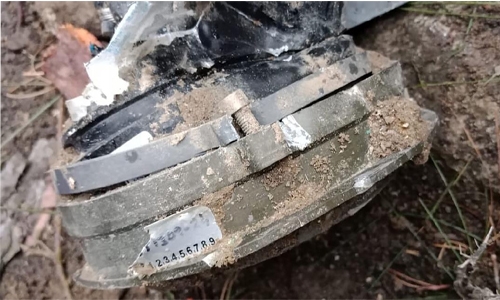300 militants killed, India claims
India said yesterday its warplanes attacked a militant camp where Pakistan-backed fighters were preparing suicide attacks on its cities. A “very large number” of militants from the Jaish-e-Mohammad (JeM) group were killed in the nightime attack, according to the foreign ministry, while Pakistan said its fighter jets scrambled to force the Indian jets back and that there were no casualties. The escalation came after a February 14 suicide bombing claimed by JeM that killed 40 troops in Indian Kashmir, setting off a chain of threats and counter-warnings between the nuclear-armed neighbours.
“A very large number of Jaish-e-Mohammad terrorists, trainers, senior commanders and groups of jihadis who were being trained for fidayeen (suicide) action were eliminated,” Foreign Secretary Vijay Gokhale said. “Credible intelligence was received that JeM was attempting another suicide terror attack in various parts of the country,” he told a press conference in New Delhi, describing the threat as “imminent”. Pakistan’s military spokesman Major General Asif Ghafoor said on Twitter that the Indian Air Force had violated the Line of Control that divides Indian- and Pakistani-administered Kashmir.
“Facing timely and effective response from Pakistan Air Force (the Indian jets) released payload in haste while escaping near Balakot. No casualties or damage.” The military spokesman also tweeted images of what he said was the Indian payload, showing what appeared to be pieces of metal and displaced soil in a heavily forested area. India’s foreign ministry also said the camp was at Balakot, but gave no further details and the exact location of the camp remained unclear. Balakot is in Pakistan’s northwestern Khyber-Pakhtunkhwa province, just a few kilometres from the Line of Control.
Escalation fears
It was India’s first use of air strikes against Pakistan since 1971, when the two went to war. Indian Prime Minister Narendra Modi and his Pakistan counterpart Imran Khan both summoned emergency meetings of top ministers in the hours after the attack. New Delhi had threatened to retaliate after the February 14 bombing, the deadliest in three decades in Kashmir. Modi, who is expected to call an election in April, had threatened a “jaw-breaking” response. But at a rally in Rajasthan on Tuesday, the Indian leader did not mention the strike directly.
He paid tribute to the military and said: “I assure the nation that the country is in safe hands.” Other top Indian officials said the strike displayed the country’s determination to act against Pakistan -- which New Delhi accuses of using militants as proxies against it. “They say they want India to bleed with a 1,000 cuts. We say that each time you attack us, be certain we will get back at you, harder and stronger,” said foreign affairs minister of state, Vijay Kumar Singh, a former head of the Indian army. Singh posted a picture on Twitter of an eagle with a snake in its claws. Pakistan’s government has denied any role in the Kashmir suicide attack.
Foreign Minister Shah Mehmood Qureshi on Tuesday accused India of committing a ceasefire violation with its airstrike and said “we reserve the right to respond adequately.” Pakistani military analyst Hasan Askari called Tuesday’s events a “dangerous move”. “If such actions continue, it can escalate into major conflict, which will not serve any purpose but to plunge the region into serious crisis,” he said. Pakistan’s interior ministry announced last week that authorities had seized control of a complex in Punjab believed to be the JeM headquarters.
Related Posts

